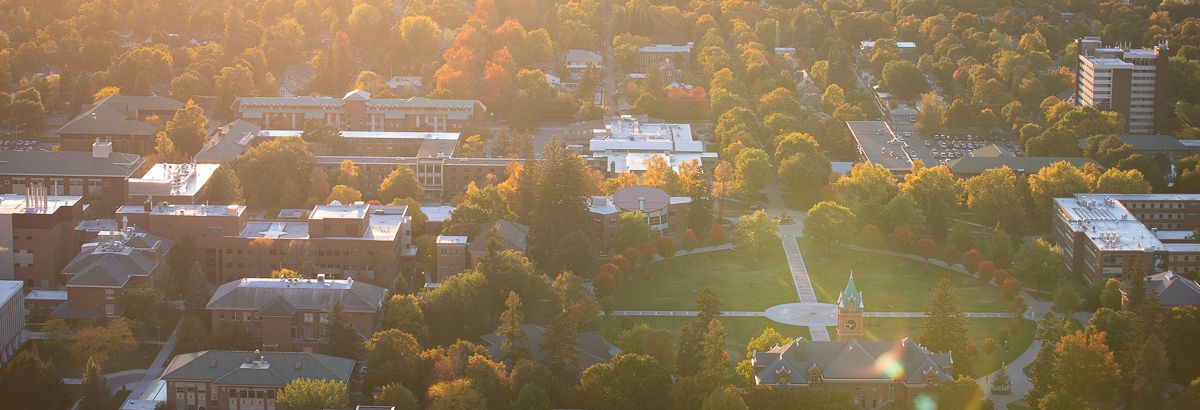TYPES OF CAPITAL ASSETS: The UM recognizes the following types/categories of capital assets:
Buildings
Building Improvements
Land
Land Improvements
Infrastructure
Equipment
Library Books and Materials
Museum and Art Collection
Intangibles
USEFUL LIFE OF CAPITAL ASSETS: The UM will group assets into types, using a defined "useful life" for all assets in that asset type. This life may be overridden on any specific asset purchase by any of the UM campuses if, based on history and experience, a useful life which is more reflective than the "default life" can be determined and supported. The “default” useful lives of types of assets are in the following item (#3). Our useful life choices are based on the State of Montana Department of Administration policy and on American Hospital Association tables.
CAPITALIZATION POLICY and USEFUL LIFE: The UM records as capital assets those assets that meet our formal capitalization policy. For FY ’02 and thereafter the capitalization policy will be as follows:
| TYPE OF ASSET | CAPITALIZATION THRESHOLD | USEFUL LIFE |
| Buildings | $ 25,000 | 40 yrs |
| Building Improvements | $ 25,000 | 15 yrs |
| Land Improvements | $ 25,000 | 20 yrs |
| Infrastructure | $500,000 | 40 yrs |
| Equipment | ||
| Furniture | $ 5,000 | 10 yrs |
| Data Processing/ | ||
| Computer Hardware | $ 5,000 | 5 yrs |
| Office Equipment | $ 5,000 | 5 yrs |
| Research Equipment | $ 5,000 | 7 yrs |
| Other Equipment | $ 5,000 | 10 yrs |
| Vehicles | $ 5,000 | 5 yrs |
| Library Books and Materials | *See related P&P | 8 yrs |
| Intangibles | $ 100,000 | 5 - 8 yrs |
In addition, the UM campuses capitalize land regardless of cost, but we do not depreciate it. Museum and Art Collection is capitalized at cost or our best estimate of fair market value, but will not be depreciated.
DEPRECIATION METHOD: The UM will use the straight-line method of depreciation for all capitalized assets.
PROPORTIONAL CONVENTION: The UM will use the "proportional convention" in treating assets acquired or disposed of during a fiscal year. This means that (See SCT Def.) depreciation will be taken on an asset during the year in which it is either acquired or disposed.
FREQUENCY OF CALCULATING DEPRECIATION: As part of our Month-End production schedule.
BASIS OF CAPITAL ASSETS: The UM records capital assets at cost. This includes ancillary costs such as freight or site preparation which are directly associated with the acquisition of the asset and placing it into service. Donated capital assets are recorded at estimated fair market value at the time they were donated.
SALVAGE VALUE: The only type of assets which are commonly traded or exchanged and to which a salvage value is appropriate are motor vehicles. UM campuses will depreciate motor vehicles assuming a salvage value of 15% of the purchase price.
GAIN OR LOSS ON DISPOSAL: The UM campuses will calculate a gain or loss each time a capital asset is disposed of, and will recognize that gain or loss in their financial records.
COMPONENTIZING: The UM does not plan to componentize any type of capital asset(s) at this time.
REPORTING OF DEPRECIATION EXPENSE AND CAPITAL ASSETS: Depreciation expense will be reported separately as depreciation- an operating expense- in the statement of revenues, expenditures, and changes in net assets. Capital assets will be reported net of accumulated depreciation in the statement of net assets. Accumulated depreciation will be reported in the footnotes of the financial statements, and will not be reported in the statement of net assets.
INFRASTRUCTURE: In FY 2002 and thereafter, the UM will follow the criteria mentioned earlier (i.e., threshold of $100,000, and “default” useful life of 40 years) in determining whether or not specific infrastructure items should be capitalized.
